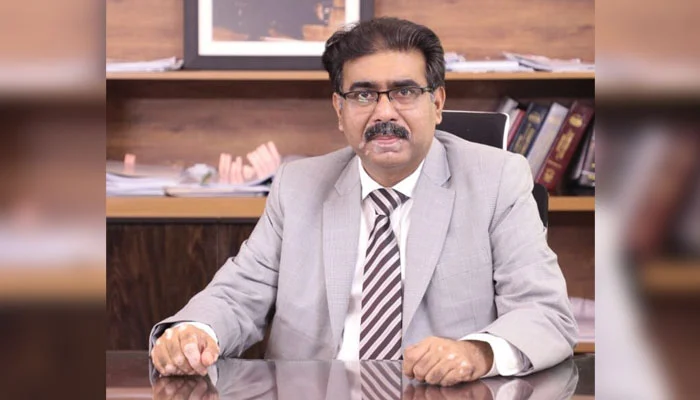Rizwan Mudassir
In a climate where accountability and workplace justice are paramount, it becomes essential to ensure that legal protections—particularly those intended to shield vulnerable individuals from harassment—are not misappropriated for ulterior motives. The recent representation accepted by the Governor of Punjab, which set aside the earlier decision of the Ombudsperson Punjab in the harassment complaint filed against Mr. Moazzam Iqbal Sipra, former Director General of the Punjab Land Records Authority (PLRA), constitutes a crucial moment of judicial correction. The decision restores not only procedural fairness but reaffirms the legal and moral imperative of protecting individuals from false or retaliatory allegations under the pretense of justice.
The case originated with a complaint filed by Mst. Fareeha Iram Warriach, a former Assistant Director Land Record, who alleged verbal harassment, intimidation, and mental stress caused by Mr. Sipra during her tenure at PLRA’s head office. She claimed that these conditions led to a miscarriage and ultimately to her dismissal from service. In a supplementary complaint, she further alleged that Mr. Sipra had made an inappropriate physical gesture toward her in a professional setting. Yet, upon close scrutiny of the factual timeline, a significant delay becomes evident—the complaint was lodged in 2023, nearly two years after both her termination from service and Mr. Sipra’s own transfer from PLRA. Such a delay undermines the credibility and urgency typically associated with bona fide harassment cases. Moreover, the original complaint contained no mention of sexual harassment, which was only introduced in the supplementary version, casting further doubt on the internal consistency of the allegations.
Despite a standing injunctive order issued by the Governor’s office, the Ombudsperson proceeded to issue a decision dismissing Mr. Sipra from service and imposing a penalty of Rs. 500,000. This act, executed in contravention of superior authority’s directive, constitutes judicial overreach and disregard for procedural discipline. Compounding the breach of process was the denial of adequate notice to Mr. Sipra and the failure to offer him a fair opportunity to cross-examine the complainant’s witnesses—witnesses who themselves were former PLRA employees removed from service due to corruption under Mr. Sipra’s tenure. This history substantially compromises their impartiality and renders their testimony unreliable under conventional standards of evidentiary prudence.
Please, subscribe to the YouTube channel of republicpolicy.com for quality content.
The overall context of the complaint strongly indicates that it was rooted more in retaliatory motives than in any genuine grievance. The complainant’s record includes termination for willful absenteeism and inefficiency under PEEDA proceedings, a finding that was upheld through multiple levels of administrative appeal. During the Governor’s hearing, the complainant herself conceded that the allegations pertained not to sexual harassment but to general workplace conduct. Even by the broader definition of harassment under Section 2(h) of the Protection Against Harassment of Women at the Workplace Act, 2010, the allegations were vague and unsubstantiated, lacking any specific conduct or corroborative material to support such a serious charge.
Perhaps the most concerning legal issue in the original decision is the violation of the principle of audi alteram partem—the right to be heard. Mr. Sipra’s response was not given due consideration, and he was denied a fair platform to refute the accusations or contest the witness testimonies, thereby stripping the proceedings of legitimacy and fairness. The Governor’s decision, in overturning the Ombudsperson’s ruling, reestablishes the primacy of due process and safeguards the integrity of administrative justice.
Beyond individual vindication, Mr. Sipra’s case holds broader implications for governance and rule of law. Harassment laws are crucial instruments of employee protection, especially for women, but their misuse erodes institutional credibility and opens the door to opportunistic exploitation. When honest and efficient officers—particularly those engaged in rooting out corruption—are subjected to false allegations, it deters the very accountability these laws are intended to support. Mr. Sipra was widely known for initiating inquiries into large-scale land fraud. That such an officer was publicly censured based on unverified and procedurally defective claims is a stark reminder of how easily legal instruments can be misused.
The Governor’s decision not only affirms Mr. Sipra’s innocence but also dissects the flaws in the original ruling. The ruling acknowledges the unreliable nature of the complainant’s evidence, the biased character of the witnesses, and the procedural lapses that fatally compromised the case. By doing so, it not only restores the dignity and reputation of Mr. Sipra but also provides a precedent for the cautious and responsible use of harassment laws within the administrative apparatus.
The fair and final resolution of this case should not be viewed in isolation. It is a victory for every upright civil servant who upholds discipline, transparency, and public interest in the face of adversity. It underscores the need for clear legal standards, impartial fact-finding, and an unflinching commitment to the principles of natural justice. The protection of the innocent must always be considered a cornerstone of justice—just as much as the punishment of the guilty.
To maintain a just and functional administrative ecosystem, it is imperative that Pakistan continue to enforce both the spirit and letter of its legal provisions, with equity and impartiality. Mr. Sipra’s exoneration is more than a correction of legal error—it is a reaffirmation of justice, integrity, and institutional fairness.

















